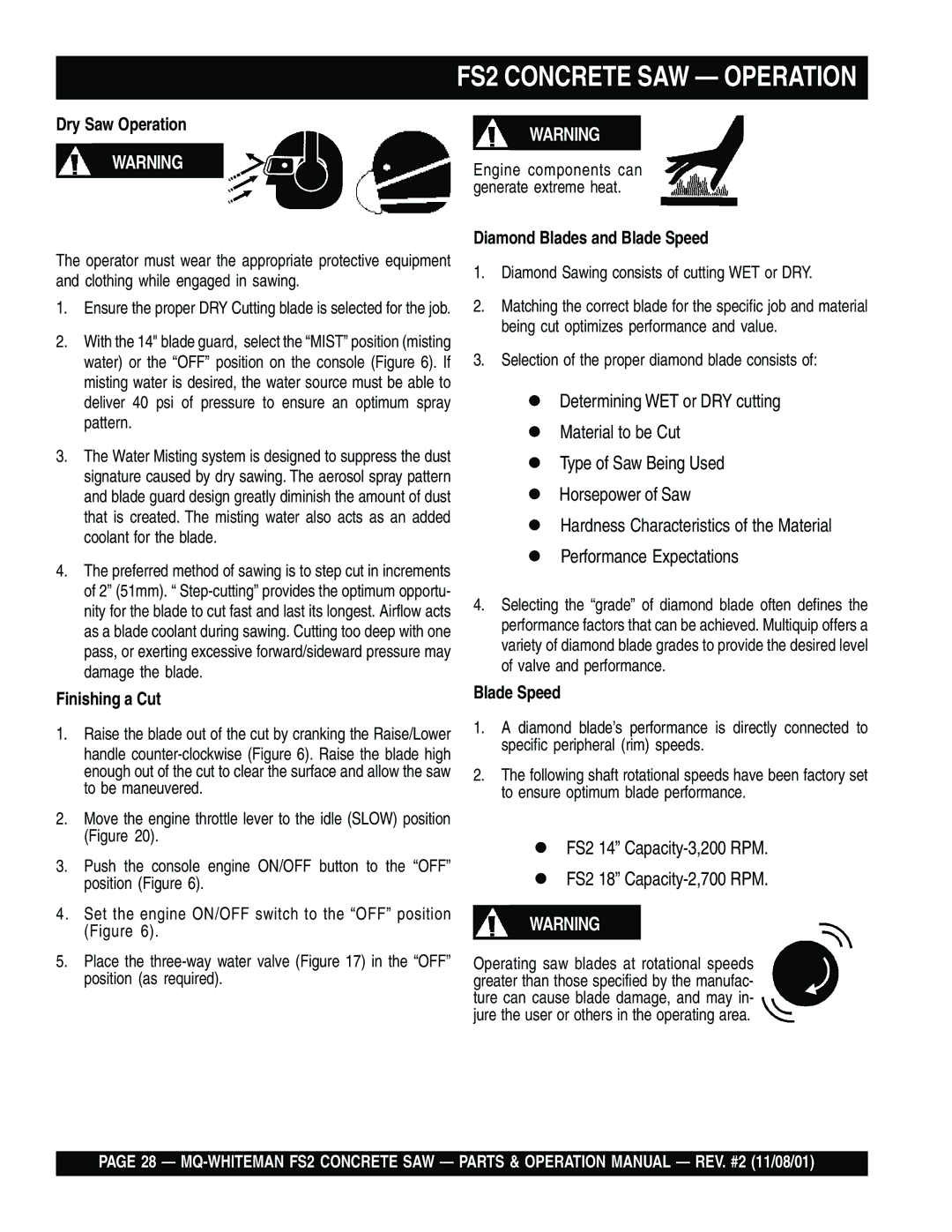
FS2 CONCRETE SAW — OPERATION
Dry Saw Operation
WARNING
The operator must wear the appropriate protective equipment and clothing while engaged in sawing.
1.Ensure the proper DRY Cutting blade is selected for the job.
2.With the 14" blade guard, select the “MIST” position (misting water) or the “OFF” position on the console (Figure 6). If misting water is desired, the water source must be able to deliver 40 psi of pressure to ensure an optimum spray pattern.
3.The Water Misting system is designed to suppress the dust signature caused by dry sawing. The aerosol spray pattern and blade guard design greatly diminish the amount of dust that is created. The misting water also acts as an added coolant for the blade.
4.The preferred method of sawing is to step cut in increments of 2” (51mm). “
WARNING
Engine components can generate extreme heat.
Diamond Blades and Blade Speed
1.Diamond Sawing consists of cutting WET or DRY.
2.Matching the correct blade for the specific job and material being cut optimizes performance and value.
3.Selection of the proper diamond blade consists of:
λDetermining WET or DRY cutting
λMaterial to be Cut
λType of Saw Being Used
λHorsepower of Saw
λHardness Characteristics of the Material
λPerformance Expectations
4.Selecting the “grade” of diamond blade often defines the performance factors that can be achieved. Multiquip offers a variety of diamond blade grades to provide the desired level of valve and performance.
Finishing a Cut
1.Raise the blade out of the cut by cranking the Raise/Lower
handle
2.Move the engine throttle lever to the idle (SLOW) position (Figure 20).
3.Push the console engine ON/OFF button to the “OFF” position (Figure 6).
4. Set the engine ON/OFF switch to the “OFF” position (Figure 6).
5.Place the
Blade Speed
1.A diamond blade’s performance is directly connected to specific peripheral (rim) speeds.
2.The following shaft rotational speeds have been factory set to ensure optimum blade performance.
λFS2 14” Capacity-3,200 RPM.
λFS2 18” Capacity-2,700 RPM.
WARNING
Operating saw blades at rotational speeds greater than those specified by the manufac- ture can cause blade damage, and may in- jure the user or others in the operating area.
PAGE 28 —
